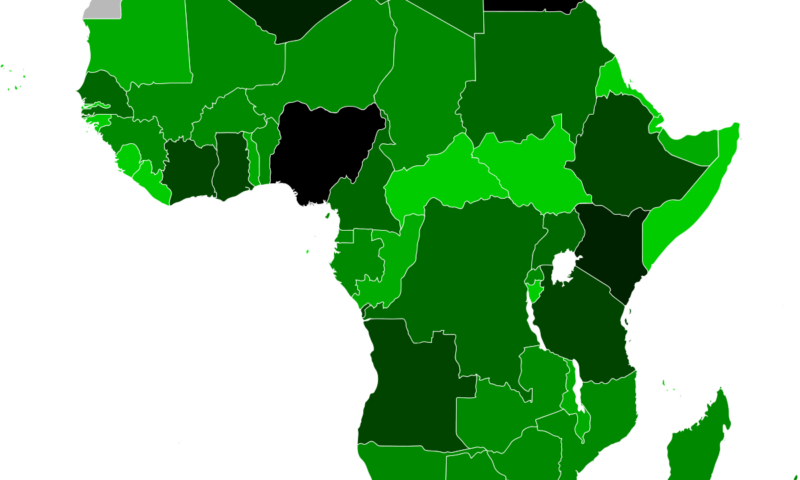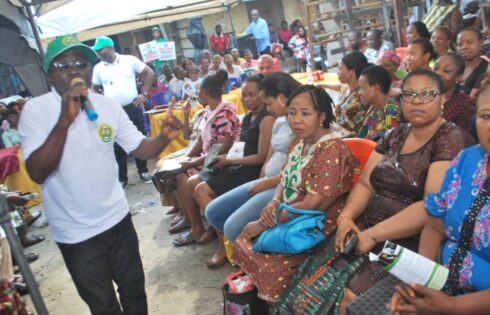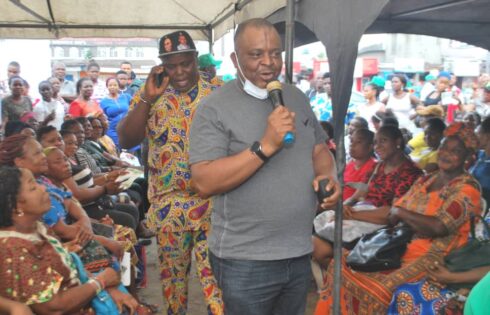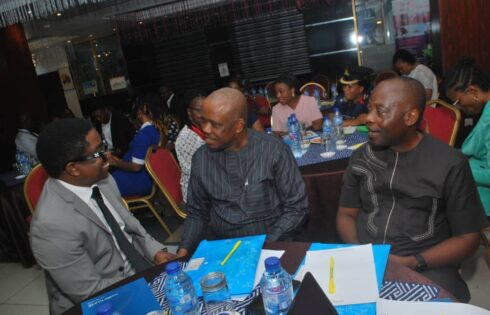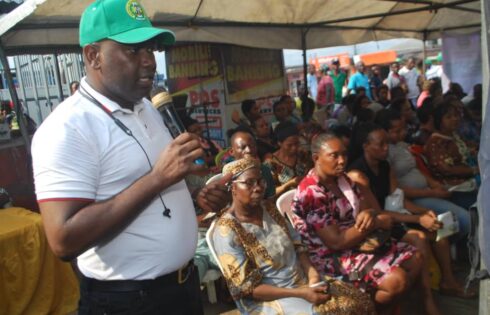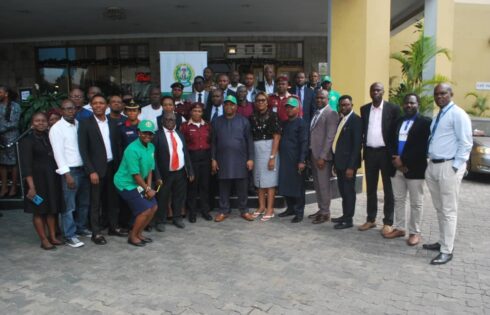MONTHLY FOCUS FOR FEBRUARY, 2023.
By Pastor Favour Onoja
“But Noah found grace in the eyes of the LORD” (Genesis 6:8).
Welcome to the Month of February, 2023. Our Focus for the Month is “GRACE”
In this Month, as Noah found grace in the sight of the Lord and he was distinguished and preserved, you shall find grace in the eyes of the Lord. I decree and declare that you shall be blessed, preserved and distinguished, in Jesus Name, Amen.
I decree and declare that God shall make all grace abound towards you and your family; and you shall abound in everything – in faith; in utterance; in knowledge; in all diligence; and in your love for God throughout this Month, in Jesus Name, Amen! (2Corinthians 8:7; 9:8).
WHAT IS GRACE?
* God’s favour and His blessing.
* Underserved goodness and favour of God to mankind.
* The triumphant announcement that God in Christ has acted and has come to the aid of all who will trust Him for their eternal salvation.
* Mercy for the undeserving and unmerciful.
* Help for the helpless.
* Redemption for the renegade and repulsive.
* Love for the unloving.
* Kindness for the unkind and un thankful.
SECRETS OF GRACE:
1. LOVE FOR GOD: Thou hast loved righteousness, and hated iniquity; therefore, God even thy God, hath anointed thee with the oil of gladness above thy fellow (Hebrews 1:9; Psalm 45:7). Love for God and hatred for iniquity becomes a major prerequisite for the grace of God. Those who love God don’t beg for the grace of God. He that loveth pureness of heart, for the grace of his lips the King shall be his friend (Proverbs 22:11). Utterance and grace, favour and likability or acceptance are poured forth where love and pureness of heart exists.
2. SERVICE: Service to God and humanity are one major secrets of Grace. Do you want to see more Grace, serve. Service does not kill, but rather enhances. Elisha poured water on the hands of Elijah (2Kings 3:11) and he worked in abundant grace. No wonder, he collected double portion of Elijah’s unction (grace).
3. SACRIFICE: Grace is also released on the platform of sacrifice.
4. HUMILITY: Humility is the pathway to accessing the grace of God. Be humble. Avoid the spirit of pride and arrogance. “Likewise, ye younger, submit yourselves unto the elder. Yea, all of you be subject one to another, and be clothed with humility: for God resisted the proud, and giveth grace to the humble.
5. IMPARTATION: Grace can also be released or accessed through impartation from a higher unction to a lower person. It’s like the gradient of a graph that flows from the top down. God instructed Moses to put some of his honour upon Joshua (Numbers 27:18-20).
6. LABOUR: Grace accompanies labourers. This was the secrets of Paul’s exploits. He laboured more abundantly than the rest Apostles (1Corinthians 15:10). He was the least, yet he came and overtook all of them and wrote two third of the New Testaments on the platform of labour.
HINDERANCES TO FUNCTIONING IN GRACE:
1. OFFENCE: Offence can
hinder the flow of virtues (power). If you want to function in Grace, have a conscience that is tender and void of Offences (Acts 24:16). The devil will use the people that you love to offend you. Learn to forgive people in advance because offence will or must definitely come (Matthew 18:7).
DANGERS OF OFFENCE:
* It hinders the flow of virtues (power).
* It moves you out of the Will of God. Moses moved out of the Will of God because of Offences (Numbers 20:11-12).
* Offence gives place to the devil in your life. It gives the devil legality on the earth to afflict you. It gives him legal grounds to operate and reck havoc at will in our lives.
* It causes your heavens to be closed.
* It hinders your productivity and effectiveness.
* It causes delays.
* It hinders your creativity, inspiration and revelation.
* It brings sickness and diseases.
* It causes you to miss out of the plan and purpose of God for your life.
* Offences causes the Holy Spirit to be grieved (Ephesians 4:30-32; Colossians 3:8).
* It hinders your prayers and fellowship with God.
* It can lead you into temptation by taking decisions against your Will.
* It can lead to depression
* It can lead to suicide
* It’s the reason behind hired assassinations.
2. INIQUITY AND SIN: Samson was hindered through sin. He prostituted the anointing of God upon his life through sin (Judges 16:1).
3. GREED AND COVETOUSNESS: Gehazi because of greed and covetousness lost everything and brought leprosy upon his generation. The prophetic grace on Elisha which he should have contacted and transmitted to his generation was also lost on the platform of greed and covetousness (2Kings 5:25-27; Jude 1:11; 2Peters 2:14-16).
4. MERCHANDISING THE ANOINTING: Those who merchandise the anointing of God on their lives cannot function in grace. The Bible said “freely you have received, freely give (Matthew 10:8). Some Pastors requests that a sum of money be paid before you can see them for prayers and some go as far as selling anointed handkerchiefs for a sum of money.
5. WRONG ASSOCIATION: Be careful with the company that you keep. It can affect your Grace (2Chronicles 18:1; 20:37)
6. UNFAITHFULNESS6: Unfaithfulness is a major destroyer of grace (Matthew 25:18-30).
PROFITS/BENEFITS OF GRACE:
1. It qualifies you. Paul said, his election was by grace (Romans 11:5; 2Peters 1:10)
2. It gives you preference above your contemporaries (Daniel 6:1-3; Esther 2:15; Luke 3:21-22).
3. It is the secret of Speed and Impact (1Corinthians 15:10). Paul enjoyed it. He wrote two third of the New Testament.
4. It is the secret of Open Doors. Doors cannot be shut against a man with grace.
5. It is the secret of Excellence. Anywhere you see excellence, grace is at work.
6. It is behind exploits in Life and Ministry. Daniel made exploits in the Babylonian Kingdom for 70 years on the platform of grace.
7. It is the secret of Distinction (Genesis 6:8). If you want to go up in life, be humble enough to apply for grace.
8. It is the secret of the Power of God. Anywhere grace is found, the power of God is in abundance.
9. It is the key to the manifestations of the gifts of the Spirit.
10. It is the secret of the keys to the Kingdom of Heaven (Matthew 16:19).
11. It is the secret of Revelation.
12. Grace is the secret of Wisdom and Expertise (Exodus 35:30-35; 36:1-2).
13. It is the secret of Ease. You accomplish tasks with ease when grace is on ground.
14. It guarantees your Security: You are secured in your area of grace. The reason for jealousy, hatred and competitive spirits in the body of Christ today is because some people are not secured in their areas of grace.
15. It is the secret to Wealth. Grateful people are wealthy people. David Oyedepo, David Yongi Cho, Kenneth Copeland, Kenneth Hagin, Oral Roberts, Billy Graham, Noah, Abraham, Isaac, Jacob, Joseph, Moses, and Job are all wealthy people.
16. It is the secret of Obedience. Grateful people are obedient people (Genesis 12:1-4).
17. It is the secret of Joy. Joyful people are grateful people (Acts 20:14).
18. It is the secret to answered prayers (Exodus 33:17).
19. It is the secret of Favour (Esther 2:15).
20. It is the secret of Rest.
PROPHESIES:
In this Month, I prophesy that the grace of God shall abound towards you in every realm, in Jesus Name, Amen!
I decree and declare that you shall enjoy sweat-less exploits this Month on the platform of Grace in Jesus Name, Amen!
FAVOUR ABU ONOJA Tel.No: +234(0)8055842594 (WhatsApp)E-mail: onojaaf@yahoo.com





